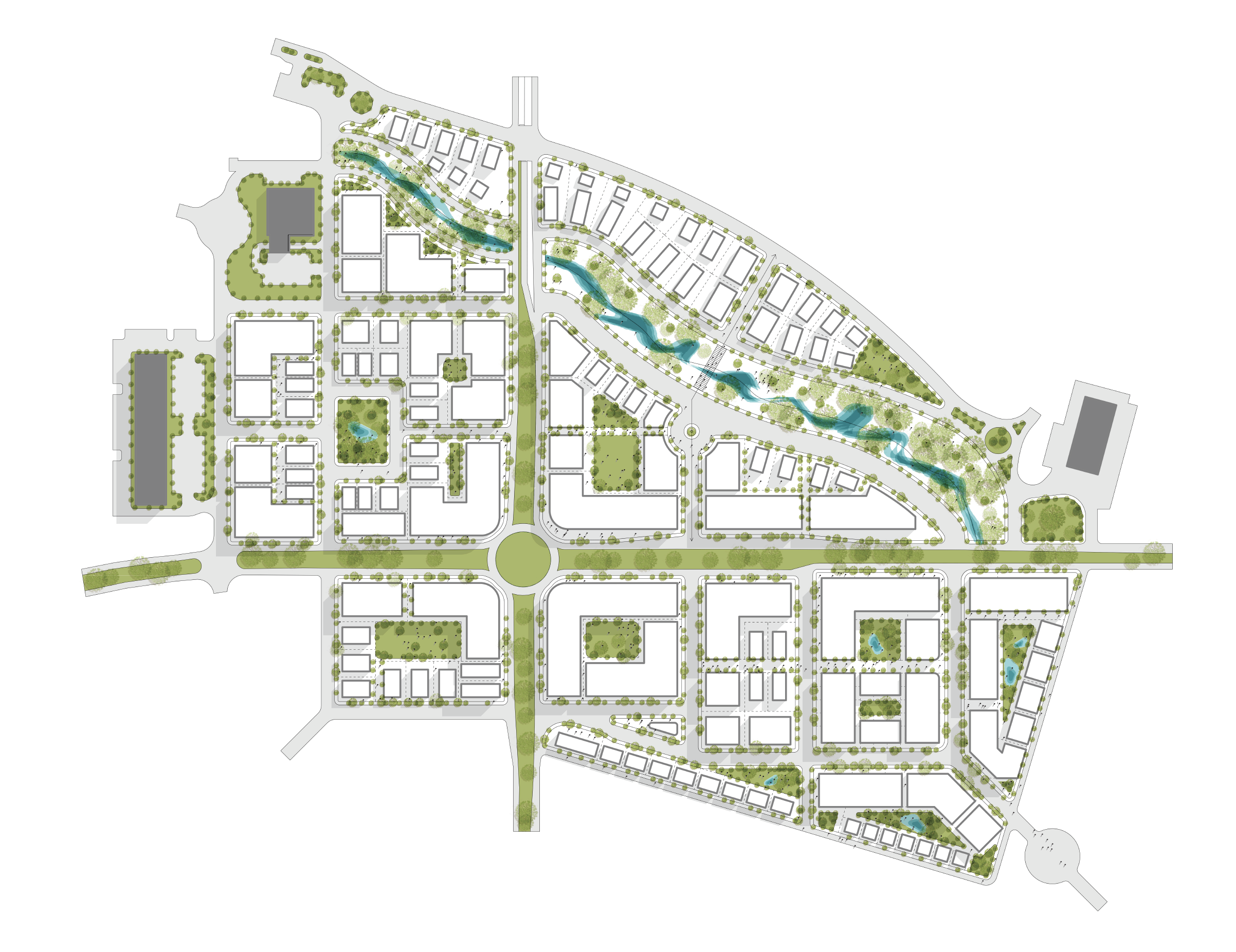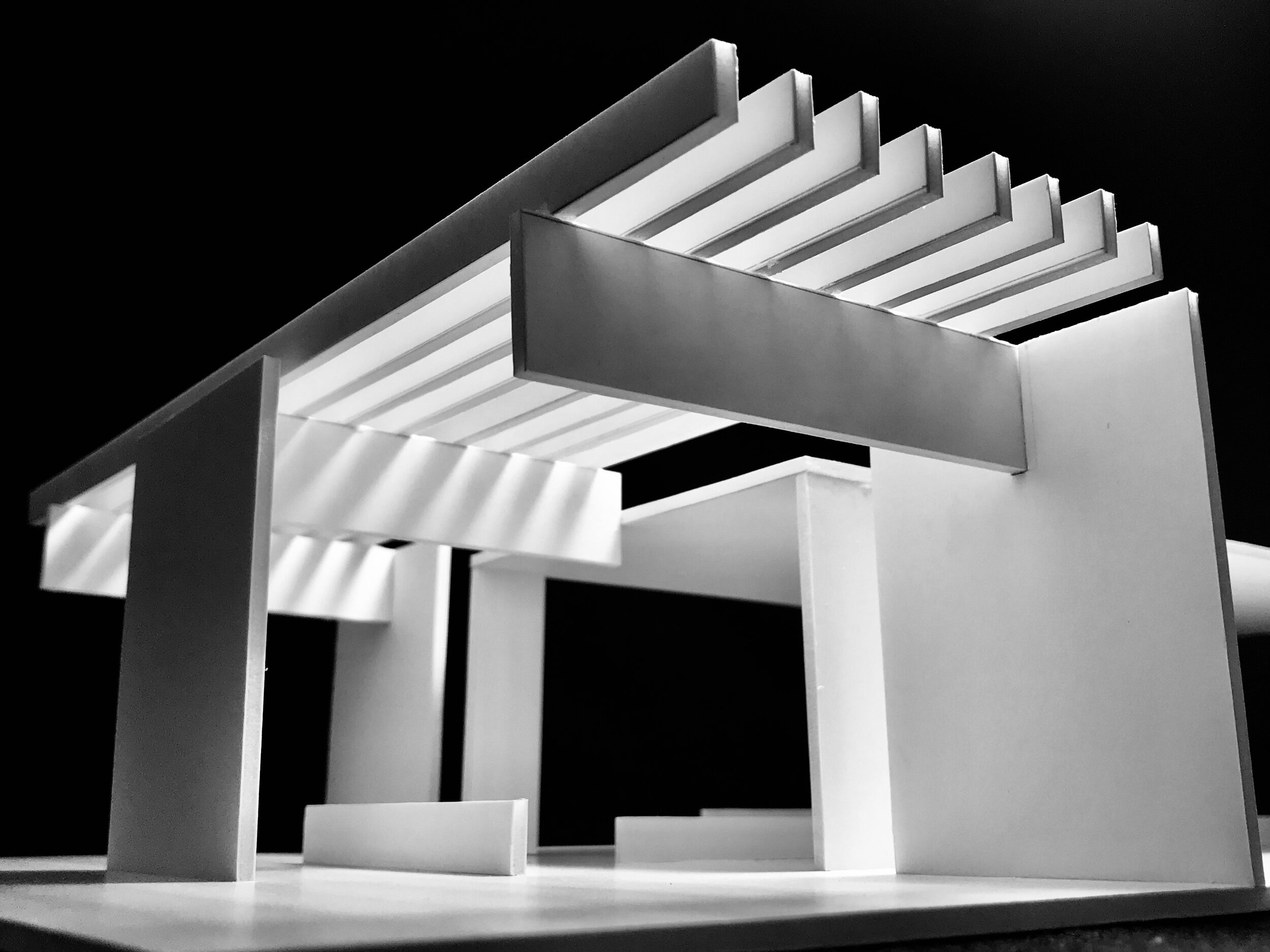Georgia Tech Studio Catalog
Project Portfolios and Appendices can be available upon request. Please use the “Contact” Tab to request information to be sent your way.
South Downtown Atlanta - Upper Intrenchment Creek Area | Fall 2020
URBAN DESIGN STUDIO 1:
Land + WATER + CITY
Supported by the Central Atlanta Progress (CAP), the Georgia Conservancy, Atlanta City Studio, and Sherwood Design Engineers, this studio crafted proposals that weave ecological theories into an expanded practical vision for South Downtown Atlanta. Concepts considered the public domain as the framework for an urban and architectural future built on decarbonization, stormwater management, and new jobs.
Radically practical urban design proposals were made with the public domain as its framework. Proposed future private buildings and gardens followed the studio theme of “Land+Water+City”.
My site, the area of South Downtown Atlanta, proposed various design concepts which emphasized leveraging stormwater runoff in unique and localized ways through new infrastructure improvements. These improvements could save the immediate area over $2million annually with their water bills in perpetuity. Unlocking this knowledge to CAP opened the floodgates for new public infrastructure investments to be considered in an area where underutilized real estate is rampant.
“Newton Crossing” - Comprehensive Site Plan | Spring 2020
URBAN DESIGN STUDIO 2:
Retrofitting Suburbia's Missing Middle
What if affordable, missing middle scale intergenerational housing and retrofitted intersections were designed to address the loneliness epidemic, autonomous vehicles, climate change, and the shrinking middle class? Four teams of graduate students received stakeholder input on their proposals to each of these topics at the intersection of By Pass Road and Jackson Highway where Covington, GA meets Newton County. The proposals are intended to assist Covington residents and those with similar suburban intersections envision how they might be re-localized to be more community-serving.
Shinagawa Gateway City - Site A Proposal | Spring 2020
Urban ecological design Studio:
Shinagawa Gateway City - Site a
The Tokyo Smart City Studio in Spring 2020 investigates Shinagawa and its surroundings at the Tokyo Bay waterfront area in the context of new maglev high speed rail station area development, one of the biggest urban development projects in the City of Tokyo of the next decade. The super high-speed maglev rail station will make Shinagawa the new gateway to Tokyo, and will shorten the travel time between Tokyo and Osaka to around 60 minutes. The new infrastructure will change the concept of space and time of inter-cities relation, and will have profound impact to the urban form, urban functions and urban experiences of the city. The project aims to develop a smart urban setting to demonstrate how a smart community is designed, evaluated, and implemented in Japan by incorporating governmental agencies, stakeholders and communities, with focuses on urban design and modeling, urban analytics of big data, Internet of Things (IoT), smart home, smart mobility, eco urban performance evaluation, and green finance industry.
The Tokyo smart city project is an international joint effort between the Global Carbon Project (GCP), the National Institute for Environmental Studies of Japan, the Department of Urban Engineering of the University of Tokyo and the Eco Urban Lab of School of City and Regional Planning and School of Architecture at Georgia Tech.
“Pocket-Park” Foamcore Model | Fall 2020
Core 1 studio:
Introduction TO architectural design
I participated in the first of three introductory-level studios in the Master of Architecture curriculum at the beginning of my graduate program to develop the skills, tools and overall confidence of critical thinking and making as a necessary foundation for contemporary architectural practice. The Core I studio focused on the development of my competence as architectural designers through the practice of a design process that is rooted in abstraction, ideation, and iteration. An iterative process was used throughout the Fall 2019 semester to employ both analog and digital tools. The exercises that were involved explored using various media and techniques of representation: such as drawings, sketches, models, and constructions. The work I produced is now showcased in the Georgia Tech Studio Spotlight exhibition, which celebrates the select few of students who have mastered the skills most in this course.



